-
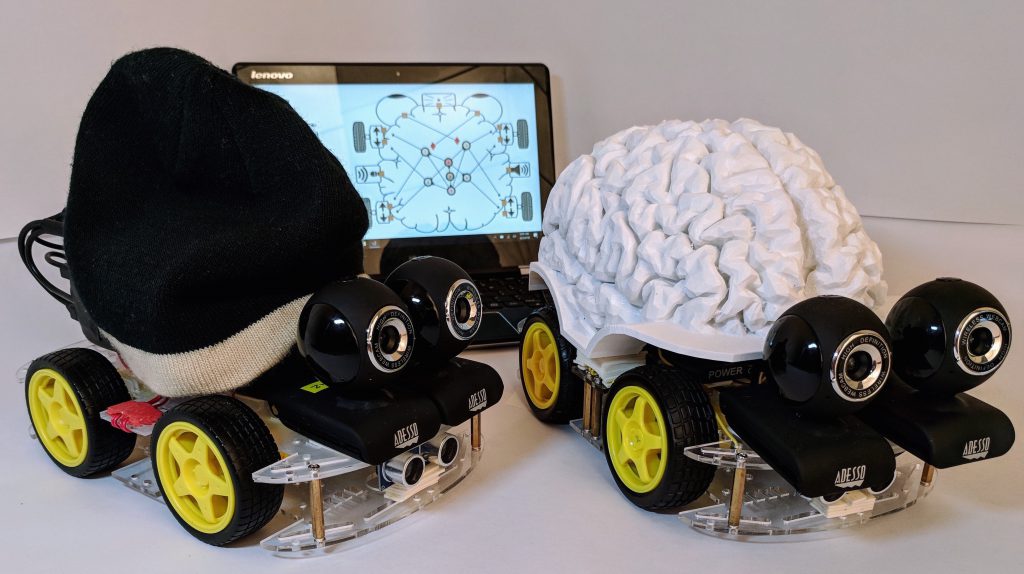 EducationStart the presses! Backyard Brains has a new publication! Our Neurorobot paper is titled “Neurorobotics Workshop for High School Students Promotes Competence and Confidence in Computational Neuroscience.” You can read the article in its entirety on the Frontiers in Neurorobotics website–because we believe neuroscience knowledge is for everyone, and no one should have to pay […]
EducationStart the presses! Backyard Brains has a new publication! Our Neurorobot paper is titled “Neurorobotics Workshop for High School Students Promotes Competence and Confidence in Computational Neuroscience.” You can read the article in its entirety on the Frontiers in Neurorobotics website–because we believe neuroscience knowledge is for everyone, and no one should have to pay […] -
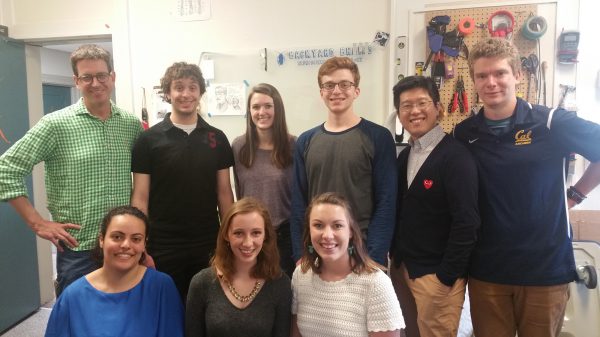 EducationNew from Backyard Brains: An in-depth summer training experience to help bring NGSS-aligned neuroscience lessons into your classroom. Do you want to learn how the brains of animals like crawdads or praying mantises work? Do you want to develop your own innovative experiments to take back to your students? Would you like to learn to […]
EducationNew from Backyard Brains: An in-depth summer training experience to help bring NGSS-aligned neuroscience lessons into your classroom. Do you want to learn how the brains of animals like crawdads or praying mantises work? Do you want to develop your own innovative experiments to take back to your students? Would you like to learn to […] -
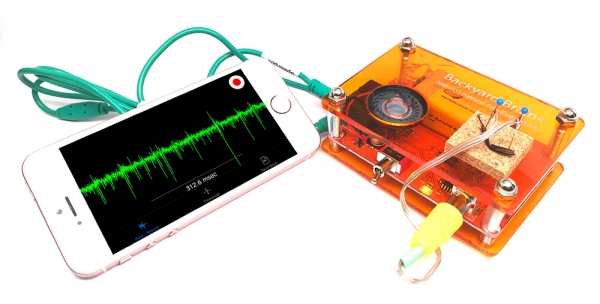 BizHow the SpikerBox Revolutionized K12 STEM Education… and just what is a SpikerBox? Backyard Brains exists today because of a once-lofty goal: To turn a $40,000+ rack of graduate-level electronics into a $100 kit that students could use in the classroom to perform real, hands-on neuroscience experiments. A decade later, we have developed four lines […]
BizHow the SpikerBox Revolutionized K12 STEM Education… and just what is a SpikerBox? Backyard Brains exists today because of a once-lofty goal: To turn a $40,000+ rack of graduate-level electronics into a $100 kit that students could use in the classroom to perform real, hands-on neuroscience experiments. A decade later, we have developed four lines […] -
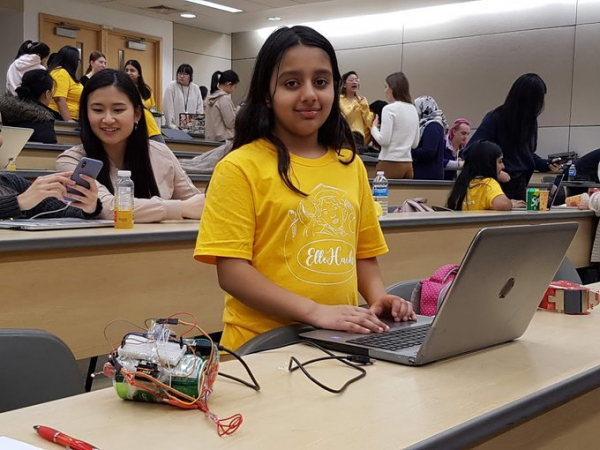 EducationWhat did you do with your weekends when you were 10 years old? We bet it wasn’t participate in a women-driven hackathon where you developed your own functioning neural robot! (We bet you wish you did, though.) Arushi Nath, age 10, recently participated in Elle Hacks 2020, an all-women hackathon hosted by York University in […]
EducationWhat did you do with your weekends when you were 10 years old? We bet it wasn’t participate in a women-driven hackathon where you developed your own functioning neural robot! (We bet you wish you did, though.) Arushi Nath, age 10, recently participated in Elle Hacks 2020, an all-women hackathon hosted by York University in […] -
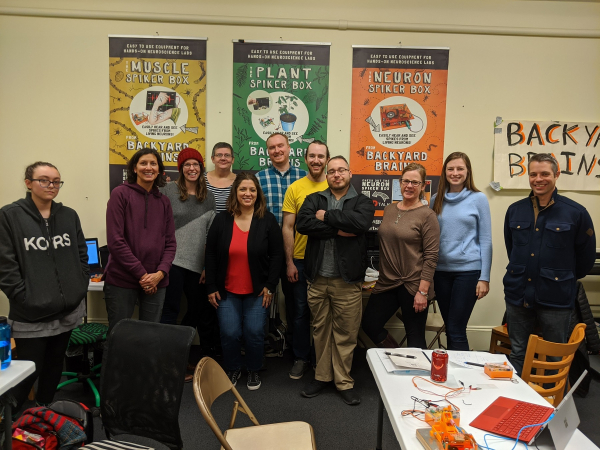 BizFollowing the previous success of our 3-day Teacher Training workshop at the end of the 2019 Calendar Year – we decided to kick-off 2020 with a free workshop for educators, open to all! So we set a date… Jan 31st, shot out some emails, and hoped we wouldn’t be eating bagels and cream cheese alone […]
BizFollowing the previous success of our 3-day Teacher Training workshop at the end of the 2019 Calendar Year – we decided to kick-off 2020 with a free workshop for educators, open to all! So we set a date… Jan 31st, shot out some emails, and hoped we wouldn’t be eating bagels and cream cheese alone […] -
 EducationWould you like all the benefits of a Backyard Brains workshop without leaving the comfort of your desk chair? Our friends and partners at Educational Innovations can help! On February 20, 2020, from 4:00-4:30pm EST, Educational Innovations will be hosting a webinar on Neuroscience in the K-12 Classroom! The Details…What: a free, 30-minute webinar from […]
EducationWould you like all the benefits of a Backyard Brains workshop without leaving the comfort of your desk chair? Our friends and partners at Educational Innovations can help! On February 20, 2020, from 4:00-4:30pm EST, Educational Innovations will be hosting a webinar on Neuroscience in the K-12 Classroom! The Details…What: a free, 30-minute webinar from […] -
 EducationThis is a call to arms for science educators everywhere… Following the success of our three-day teacher training workshop at the end of 2019, and our Summer 2019 Workshop on Reactions and Reflexes, we want to kick off 2020 with the next FREE workshop open to the public! This workshop is coming up quick… so […]
EducationThis is a call to arms for science educators everywhere… Following the success of our three-day teacher training workshop at the end of 2019, and our Summer 2019 Workshop on Reactions and Reflexes, we want to kick off 2020 with the next FREE workshop open to the public! This workshop is coming up quick… so […] -
 BizNeuroscience Experiment Intern Wanted (Downtown Ann Arbor) Compensation: $15/hr based on 40-hour work weekEmployment type: full-time internship Backyard Brains is seeking a neuroscience intern to continue ongoing experiments! You:-A STEM undergrad, currently taking a break from the classroom. (Recent grad or gap year preferable)-Passionate about scientific discovery and designing innovative, impactful experiments-Experienced in or excited […]
BizNeuroscience Experiment Intern Wanted (Downtown Ann Arbor) Compensation: $15/hr based on 40-hour work weekEmployment type: full-time internship Backyard Brains is seeking a neuroscience intern to continue ongoing experiments! You:-A STEM undergrad, currently taking a break from the classroom. (Recent grad or gap year preferable)-Passionate about scientific discovery and designing innovative, impactful experiments-Experienced in or excited […] -
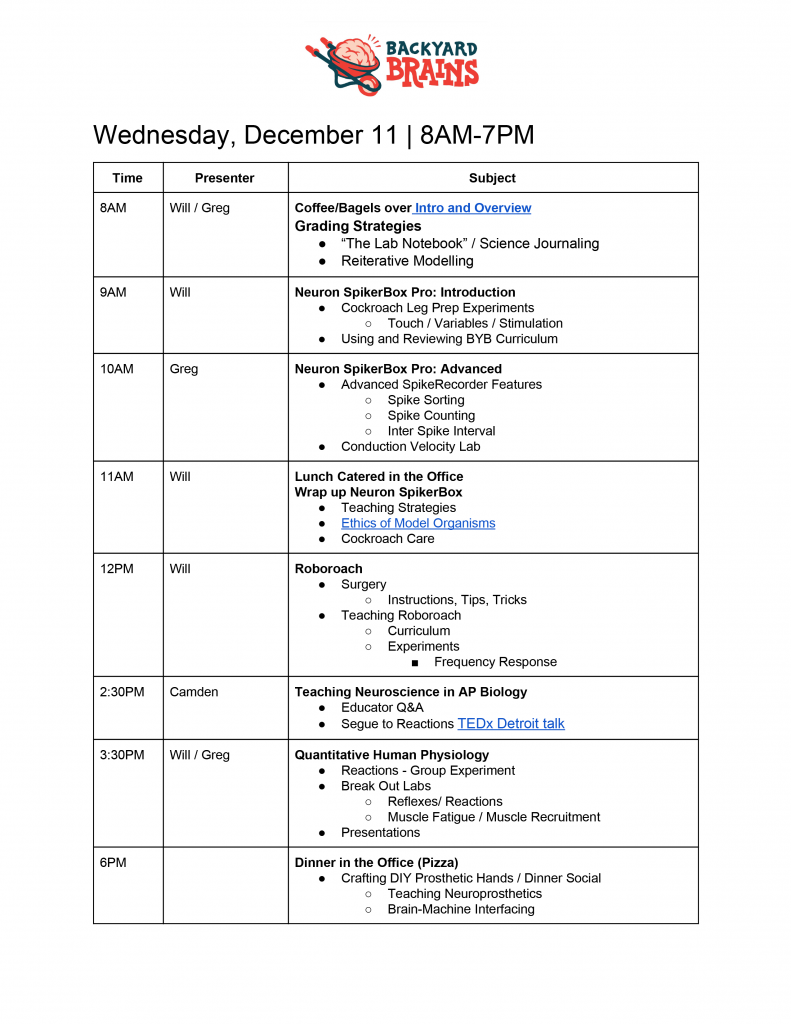 EducationTexas Teachers Brave Michigan Winter for Neuroscience Ed Workshop, and Love it! Nine teachers from Texas join up with a few of us Neuroscience Education nerds in snowy Michigan… and holiday magic happens!
EducationTexas Teachers Brave Michigan Winter for Neuroscience Ed Workshop, and Love it! Nine teachers from Texas join up with a few of us Neuroscience Education nerds in snowy Michigan… and holiday magic happens!